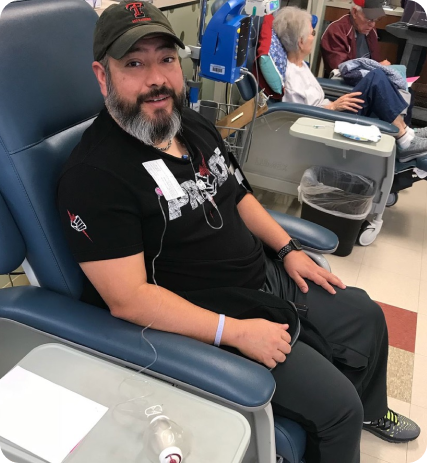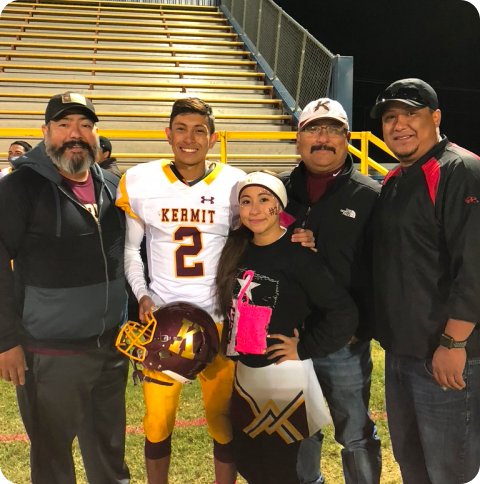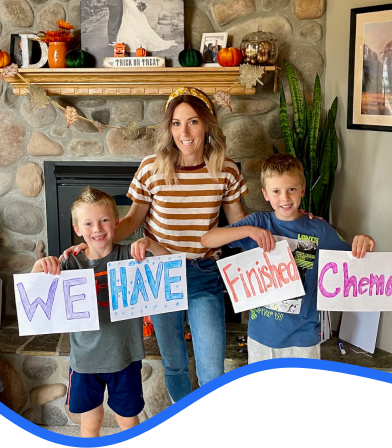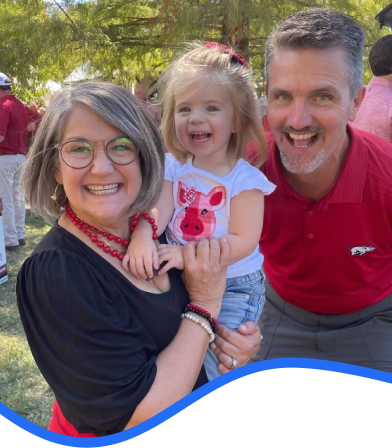
Title of the document
I would tell newly-diagnosed stomach cancer patients that their cancer may be different from others
and they have the potential to get better or more specific treatment based on their personal biomarkers.
I am alive today due to
biomarker testing and treatment.

Javier Florez
Diagnosis:
Biomarker:
Diagnosis and Early Treatment
Concerned, I sought input from my primary care doctor. He ran many tests, and referred me to a specialist after seeing something on my lung X-ray. It took a while to get in with that doctor, who initially thought I may have COPD, but a lung biopsy in April 2017 revealed I had adenocarcinoma. At first, I thought that meant I had lung cancer, but my surgeon and oncologist explained that an endoscopy showed that my cancer had started in my stomach and metastasized to my lung.
Being generally healthy, it came as quite a shock that I had Stage IV stomach cancer, and I decided to get a second opinion on treatment at MD Anderson Cancer. As it turned out, the broad strokes of my diagnosis didn’t change much, and my early treatment plan involved a FolFOX chemotherapy infusion every two weeks for about seven months. Concurrently, since I was HER2+, I also began receiving Herceptin, a monoclonal antibody which specifically targets and binds to HER2 receptors in some cancer cells. While I haven’t had chemotherapy since 2017, I never stopped taking Herceptin, and will continue the protocol indefinitely.

Being generally healthy, it came as quite a shock that I had Stage IV stomach cancer...

The Case for Biomarker Testing



Meet other patients.

PDL-1 CLDN 18.2
Lauren Donithan
Lauren was diagnosed with Stage IV stomach cancer in 2023 at age 37.

HER2
Javier Flores
Javier received the grim diagnosis of Stage IV stomach cancer in 2017 at age 39.

MSI-high
Uroosa Khalid

HER2
Terri Brady

HER2
Bruce Shipman
In 2021, Bruce was in the midst of a cross-country move when he was diagnosed.


tumor
mutational
burden
Suzanne Ottinger